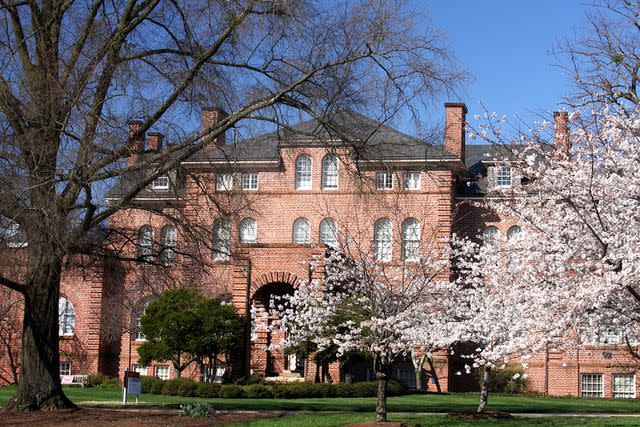Over 150 Cancer Cases Reported amid North Carolina State University’s Investigation of Toxic Chemicals on Campus
NC State University has closed Poe Hall and launched an investigation after elevated levels of cancer-causing chemicals known as PCBs were detected

North Carolina State University has launched an investigation after elevated levels of cancer-causing polychlorinated biphenyls (PCBs) were detected in a campus building.
Due to their harmful effects on human and environmental health, PCBs were banned in the U.S. in 1979. However, products made prior to the ban can still contain PCBs.
In August 2023, an NC State employee reported health concerns about Poe Hall on the school's main campus to the school’s environmental health and safety unit. In November the university conducted testing of building materials, Vice Chancellor Warwick Arden said in a webinar last week.
"The concerns specifically mentioned PCBs, along with lead and asbestos," Arden said.
The preliminary testing found that asbestos and heavy metals were “within the acceptable limits,” however, PCBs were detected in the building in October 2023 and November 2023. According to the U.S. Environmental Protection Agency (EPA), PCBs are “probable human carcinogens” that can cause negative reproductive, neurological, immune and endocrine effects. It is not known if the cancer cases at NC State are indeed linked to the PCBs.
“After receiving analytical results from the laboratory in November that reported detections of PCBs in some dust and some bulk samples, NCSU closed Poe Hall and shut down the HVAC systems out of an abundance of caution, pending further investigation,” a university report, published February 2024, states.
The report also notes that Poe Hall was built in 1971, when PCBs were “widely used in building materials, such as paint, caulk, and some mastics, across the United States” before being banned in 1979.
Related: His Wife Divorced Him Over a 'Personality Change': 'Turns Out I Have a Brain Tumor'

Getty
North Carolina State UniversityNever miss a story — sign up for PEOPLE's free daily newsletter to stay up-to-date on the best of what PEOPLE has to offer, from celebrity news to compelling human interest stories.
The investigation has now led to numerous alumni reporting health conditions that they claim may be linked to Poe Hall.
Over 150 people have reported cases of cancer or other serious illnesses to WRAL in Raleigh, North Carolina. The local outlet has been collecting health data from current and former students and employees since the university’s investigation was launched.
These cases have not been officially linked to Poe Hall and cannot be considered a “cancer cluster,” which is “the occurrence of a greater than expected number of cancer cases among a group of people in a defined geographic area over a specific time period,” according to the National Cancer Institute.
During last week’s webinar, State Epidemiologist Zack Moore said that the North Carolina Department of Health and Human Services has also “heard directly from some of those people who are dealing with cancer or other serious health illnesses.”
NC State Chancellor Randy Woodson said that the university will not be commenting substantially on the investigation, however, they will be providing updates “as appropriate.”
"I recognize that people are very eager for answers to their questions," he said. "This is very stressful, and I understand that. It's a particular concern to us that we move through this as quickly, but as thoroughly as we can."
“No agencies at this point have completed the work to understand if the building conditions could have contributed to health issues,” Woodson continued. “I want to stress that we’ve had no such evaluative outcome.”
PEOPLE reached out to North Carolina State University but has not yet heard back.
For more People news, make sure to sign up for our newsletter!
Read the original article on People.


